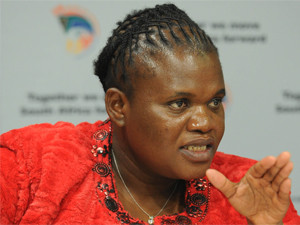
The Digital Terrestrial Television Programme Management Office (DTT-PMO) will today present a status update to Parliament on the progress of digital migration.
The DTT-PMO, under the stewardship of communications minister Faith Muthambi, will deliver a status report on the DTT project to a joint sitting of the portfolio committees on communications, telecommunications and postal services, according to statement from the Ministry of Communications.
"The Department of Communications (DOC) plays a leading role in ensuring the project implementation process is effectively and efficiently coordinated," says the statement.
South Africa has been planning for digital migration since 2008 but delays in policy and legal challenges from broadcasters have delayed the implementation for almost a decade. SA missed the International Telecommunication Union's 17 June deadline to turn off analogue broadcast and shift to a digital television era.
The DOC says the primary objective of digital migration is to clear the radio frequency spectrum occupied by broadcasters, to enable the provision of wireless mobile broadband services and other innovative applications.
"Good progress has been made thus far, and all entities and stakeholders involved in the DTT migration initiative are working hard to make this project a success," according to Muthambi.
The DTT-PMO has also deployed a consumer awareness team to educate the public at large about digital migration and its benefits for South Africans.
The Universal Service and Access Agency of SA is waiting to officially issue contracts to manufacturers successful in a tender bid to supply free set-top boxes (STB) to around five million low-income households. Set-top boxes will be used to enable free-to-air broadcasting services to migrate from analogue to digital television.
Digital delays
On 25 June, a legal challenge by Etv over STB controls was dismissed by the North Gauteng High Court.
The free-to-air broadcaster approached the court to have a gazetted amendment set aside in the broadcasting digital migration policy that says government-subsidised STBs would not have the capability to encrypt broadcast signals.
Etv has long argued government-subsidised STBs should have the capability to support encryption. "This would prevent pirate STBs from receiving the broadcast signal," argues the broadcaster.
The judgement effectively cleared the way for SA to proceed with digital migration but the public are still waiting for a specific date for the switch to be announced by the DOC.
About 65% of the 13 million homes with TV in SA rely exclusively on free-to-air broadcasting services.
Share